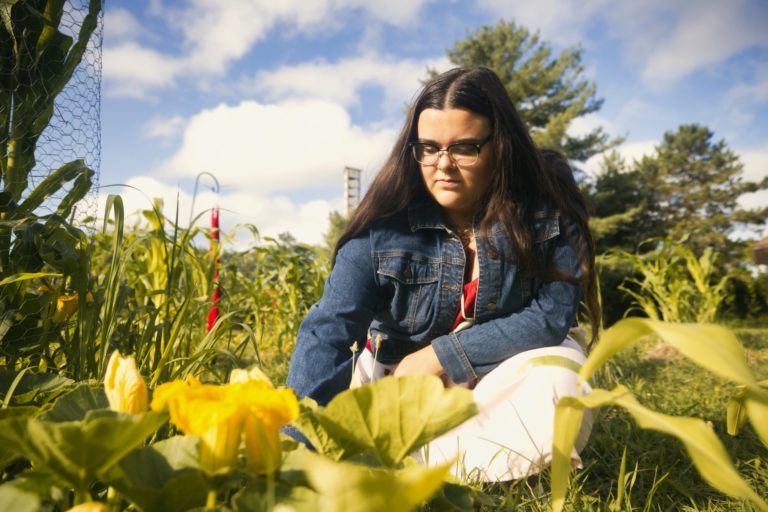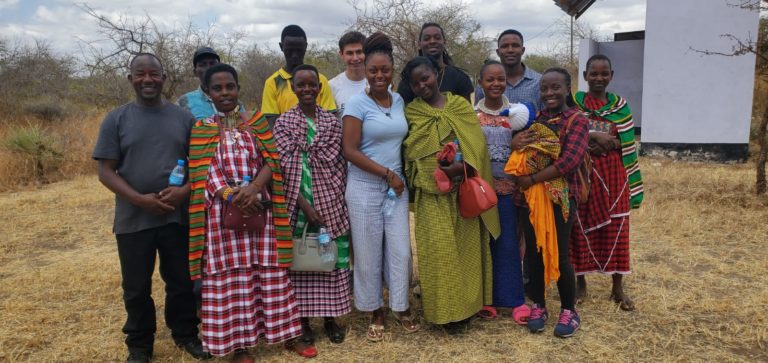Jonathan Choti, Associate Professor in the Department of Linguistics, Languages, and Cultures (LiLaC), received Michigan State University’s 2023-2024 Creating Inclusive Excellence Grant (CIEG) of $12,000 to further his community engagement work in Tanzania.
Choti and his Tanzanian collaborator, Jonathan Kivuyo of the University of Dar es Salaam, will use the funding to fight food insecurity in Naitolia Village in Northern Tanzania. Specifically, they will expand upon their 2022 Network for Global Civic Engagement (NGCE) project by introducing nutrient-dense, drought-resistant vegetables, raised gardens, and drip irrigation to more families in Naitolia. Titled “Combating Food Insecurity in Naitolia Village of Northern Tanzania,” this project extends MSU’s inclusion efforts to the international level.
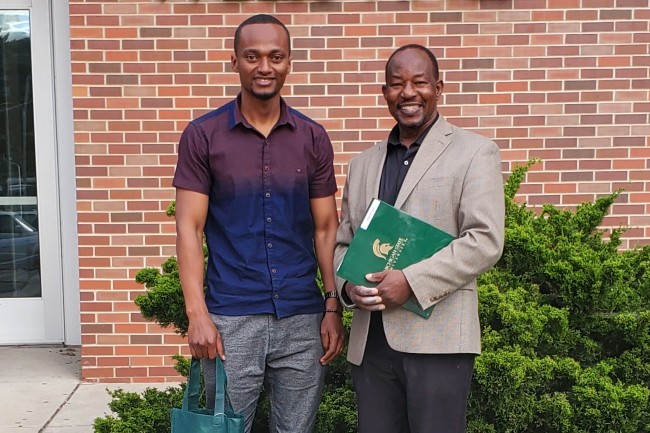
Located in a low-lying, dry place, Naitolia’s environment poses acute challenges to the livelihood of its residents with hunger and malnutrition being common issues in this community of about 3,000 people.
Naitolia is a community partner of MSU’s Tanzania Partnership Program (TPP) run by the Office of International Studies and Programs (ISP). The TPP consists of MSU faculty in partnership with faculty from the University of Dar es Salaam, Sokoine University of Agriculture, and the two Tanzanian communities of Naitolia and Milola. The main goal of this partnership is to co-create a model of sustainable community development and build academic connections with Tanzanian academic institutions, scholars, and development practitioners.
“This grant will go a long way to strengthening my work and collaborations in East Africa besides improving livelihoods in a deprived community. I am so grateful to MSU for this support.”
Dr. Jonathan Choti
Choti is the co-director of the TPP-sponsored six-week summer education abroad program known as “Sustainable Community Development in Tanzania.” He has co-directed this program, which is held in Naitolia, since 2015 and sees a close connection between the CIEG project and the student projects.
“The implementation of the vegetable gardens project in Naitolia will lay the necessary ground for the 2024 education abroad student projects,” Choti said.
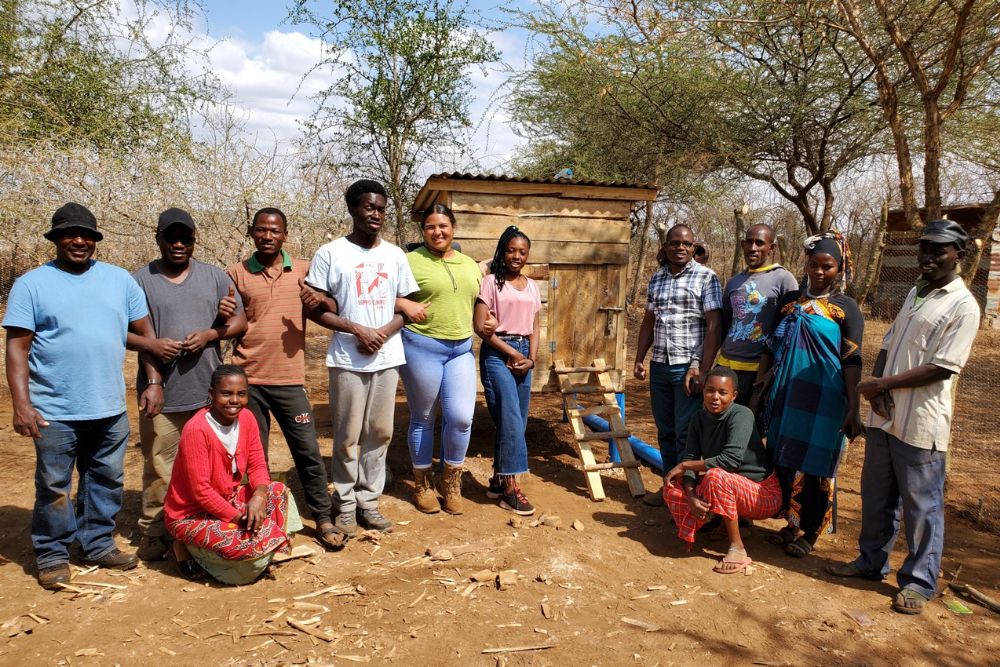
In Summer 2024, the education abroad students and faculty who are part of the Sustainable Community Development in Tanzania program will hone their skills in community-engaged activities and generate new knowledge in interdisciplinary projects. They also will publicize project findings, which will contribute to their educational, scholarly, and professional development.
The CIEG project complements projects that TPP and education abroad teams have implemented in Naitolia since 2008 and 2013, respectively. The TPP projects focus on education, community health, water infrastructure and management, and animal health, while the student projects address pressing issues in education, community health and empowerment, food insecurity, water safety and access, and economic empowerment.
“This grant will help educate Naitolians on best gardening practices and establish raised gardens in the community. These gardens are easy to manage, require little water, and retain water and nutrients in the soil for longer periods.”
Jonathan Kivuyo
Choti applied for the CIEG funding to help strengthen the international collaboration between MSU/TPP, the University of Dar es Salaam, and Naitolia Village.
“This grant will go a long way to strengthening my work and collaborations in East Africa besides improving livelihoods in a deprived community,” said Choti, who teaches Swahili language and courses on African cultures at MSU and who focuses his scholarly activities on East Africa. “I am so grateful to MSU for this support.”
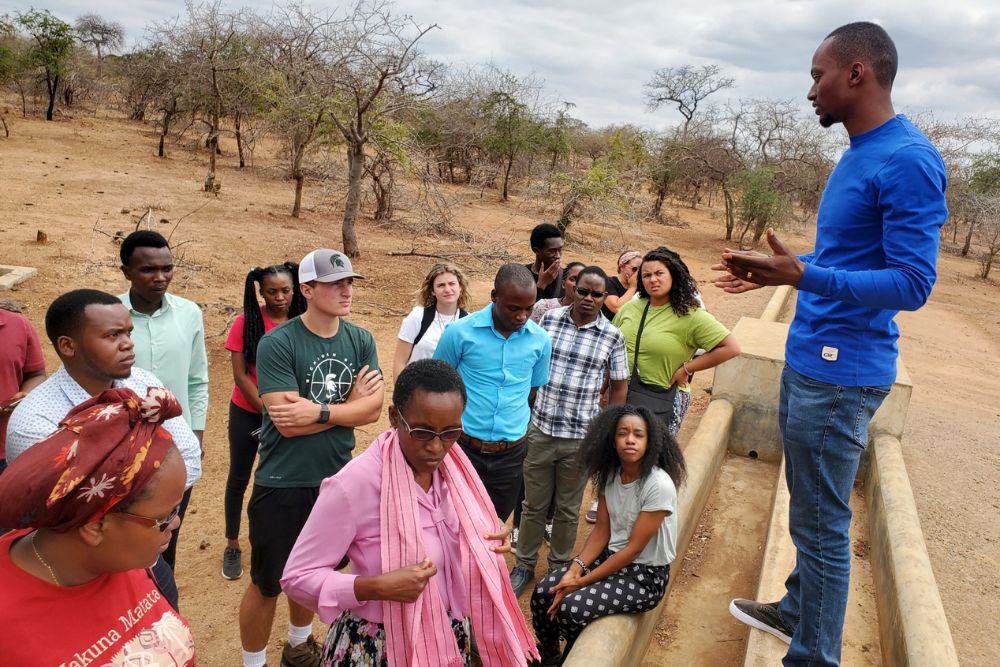
Kivuyo is the TPP’s Naitolia-based officer who plays a central role in introducing TPP partners and education abroad students to Naitolia and overseeing TPP projects.
“My role is to oversee day-to-day development activities in the areas of community health, food security, community education, youth empowerment, economic development, water resource management, and environmental issues,” he said. “This grant will help educate Naitolians on best gardening practices and establish raised gardens in the community. These gardens are easy to manage, require little water, and retain water and nutrients in the soil for longer periods.”
Anticipated Outcomes and Impacts
The CIEG-funded project was designed to achieve these outcomes:
- Naitolians will receive education and skills related to drought-resistant vegetables, drip irrigation, and the construction of raised gardens.
- Naitolians will become self-reliant in food production by planting drought-tolerant, perennial vegetables that will combat hunger and malnutrition and improve the overall diet in the community.
- Families may sell and/or donate extra vegetables to earn income and establish positive social relationships, respectively.
- MSU and Tanzanian students and faculty will have an opportunity to participate in a community-engaged learning environment to generate and share new knowledge.
Established in 2005, the CIEG program provides funding to MSU colleges, academic and administrative units, individuals, and groups to advance diverse recruitment, support underrepresented groups, and promote outreach and engagement. CIEG supports projects that create collaboration within and across organizational systems in support of an inclusive educational and work environment.
